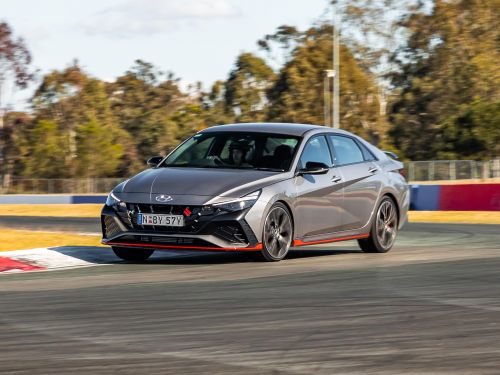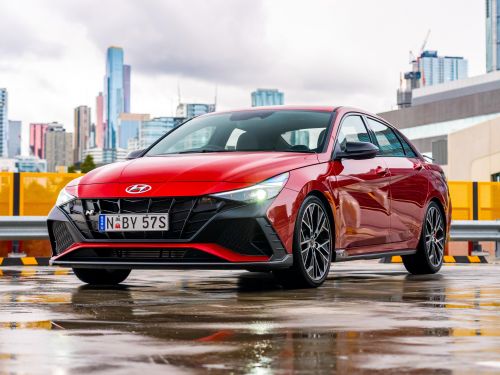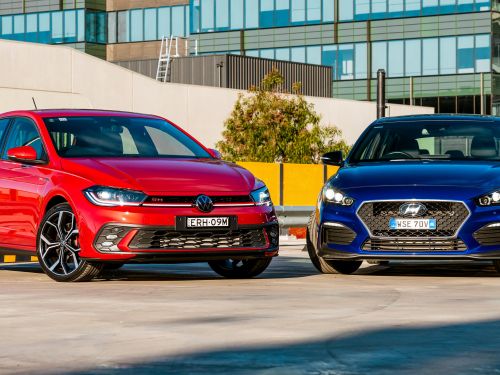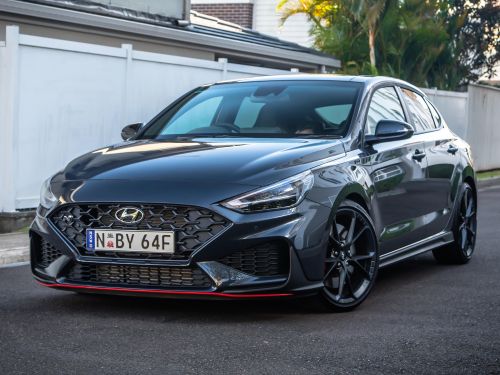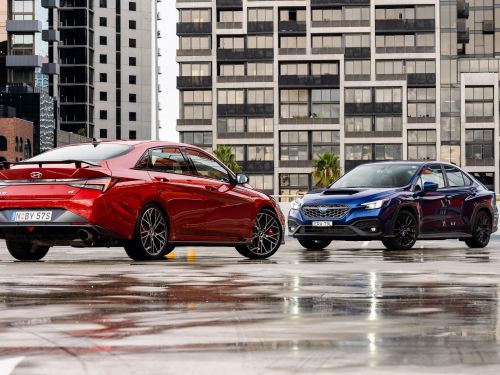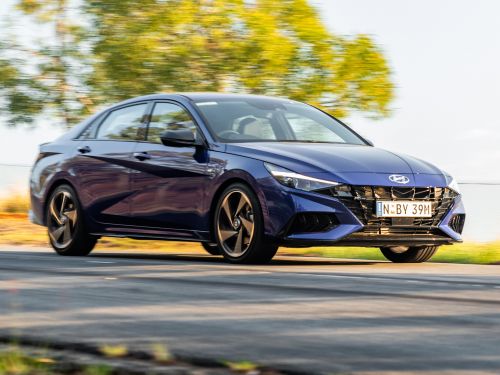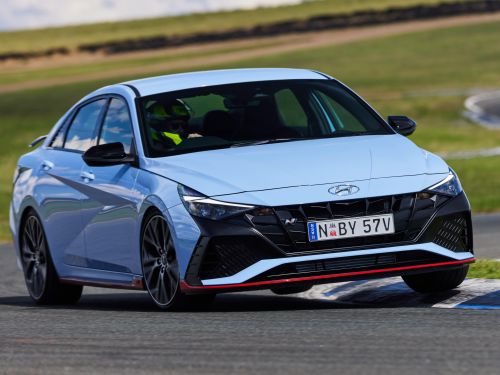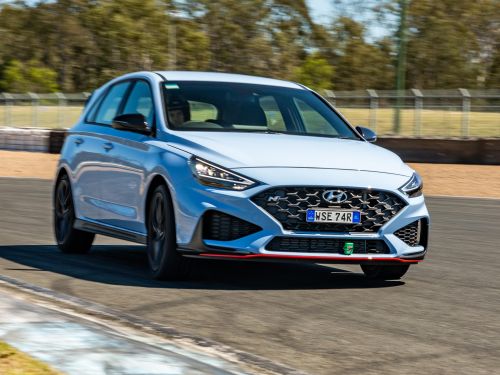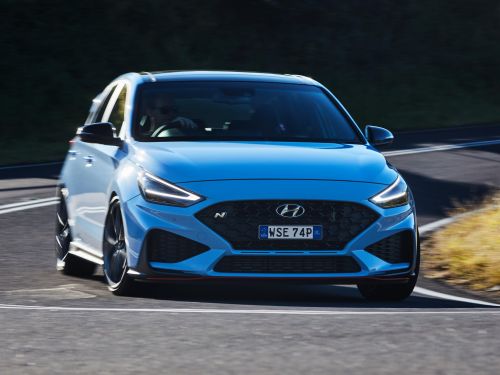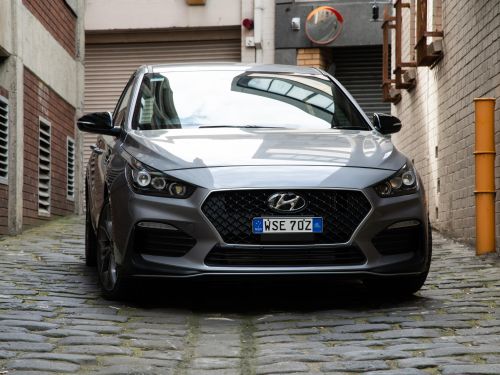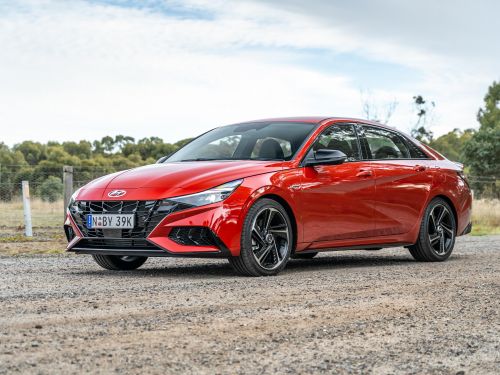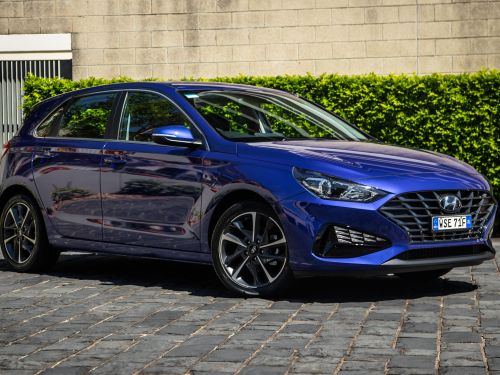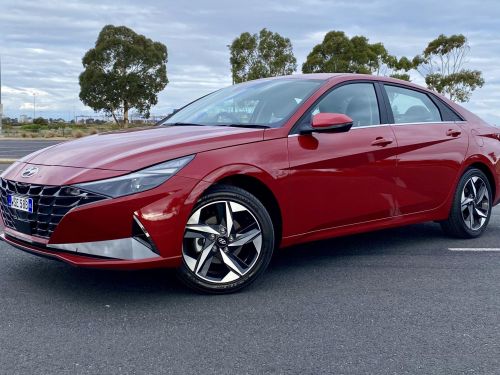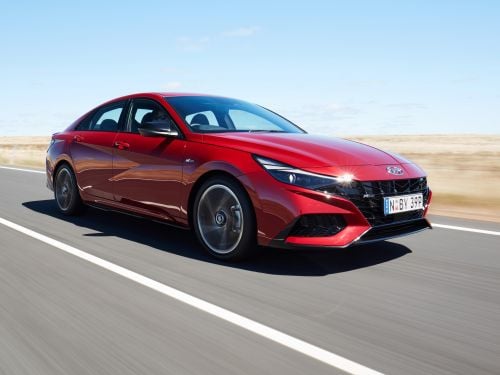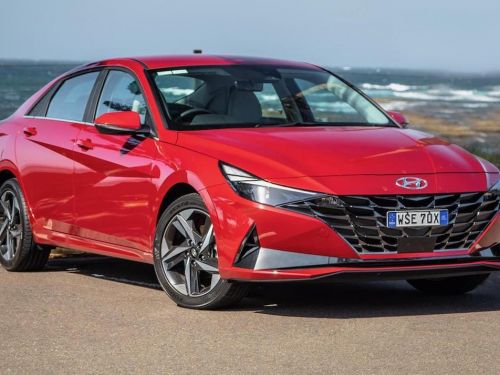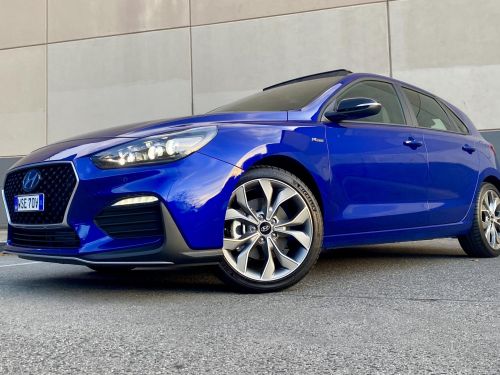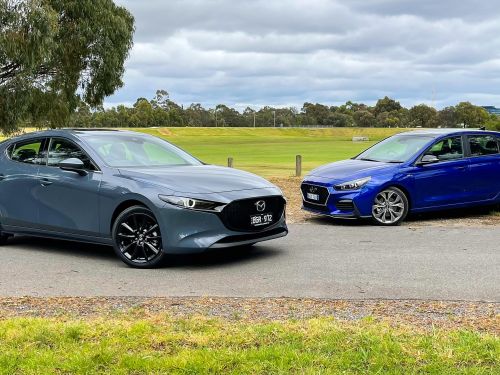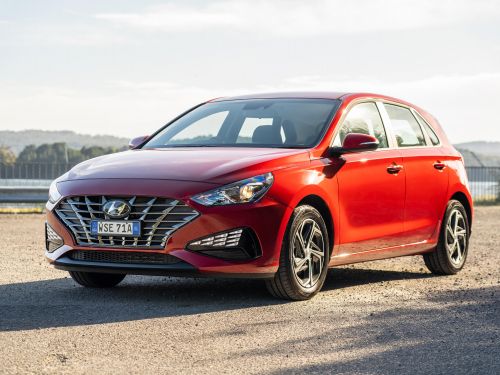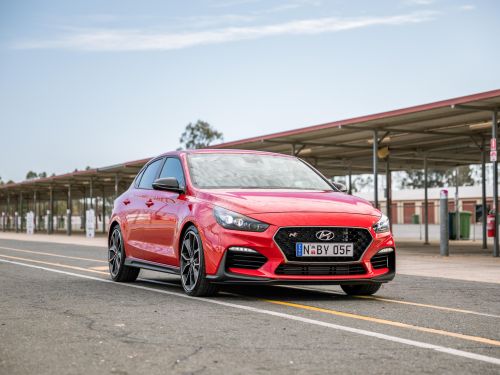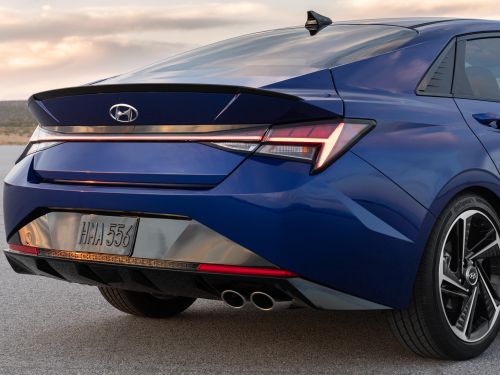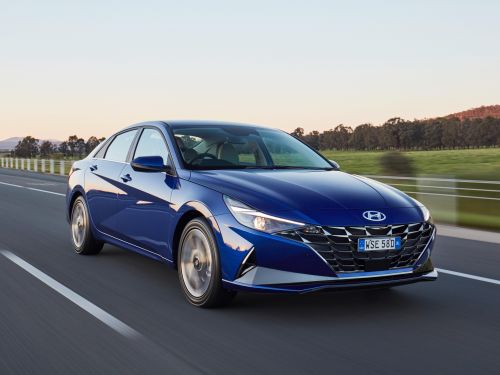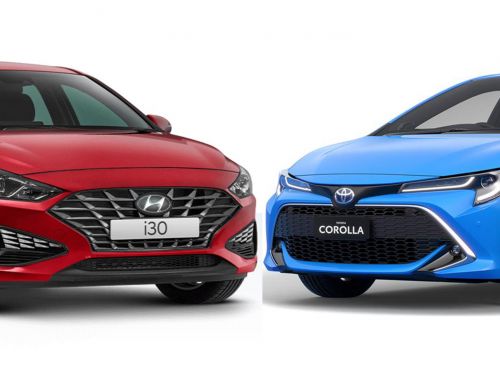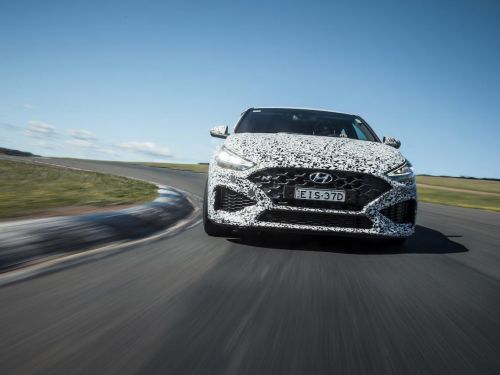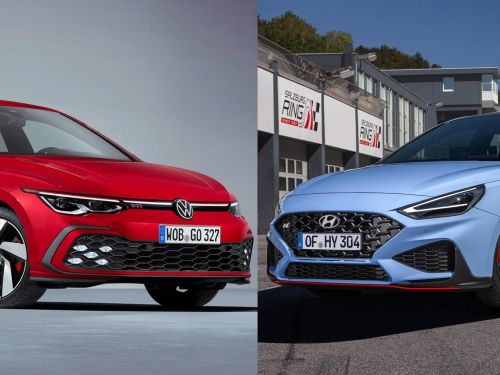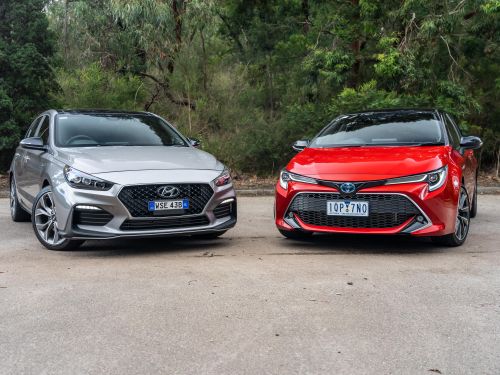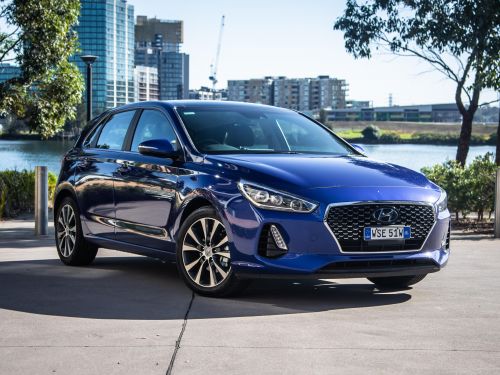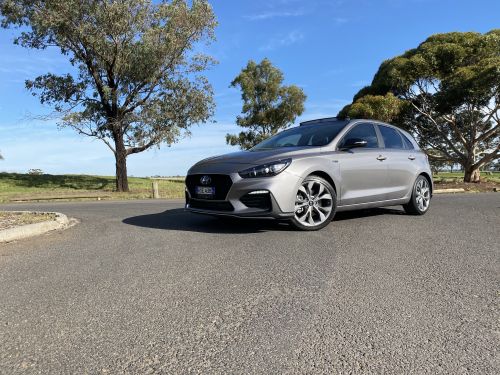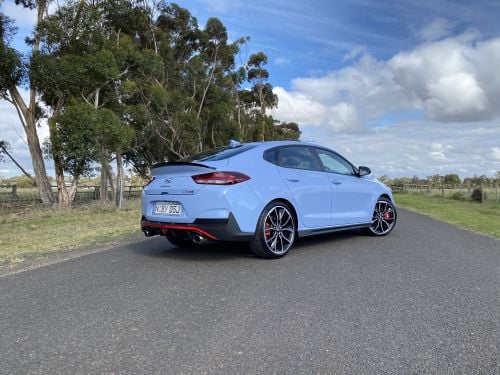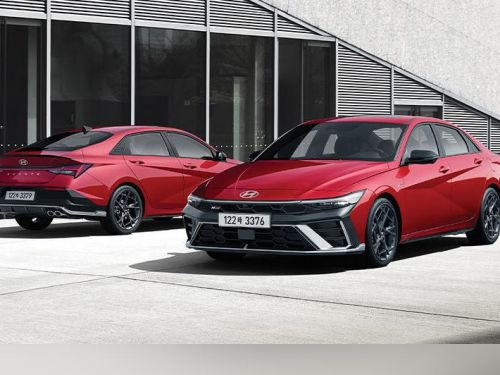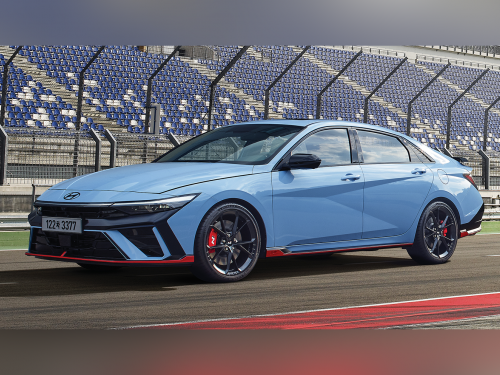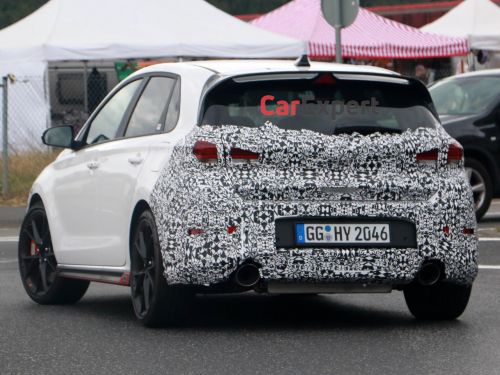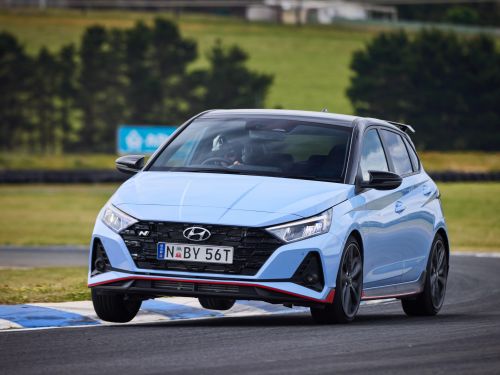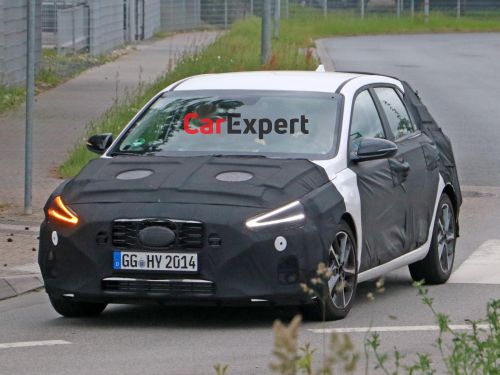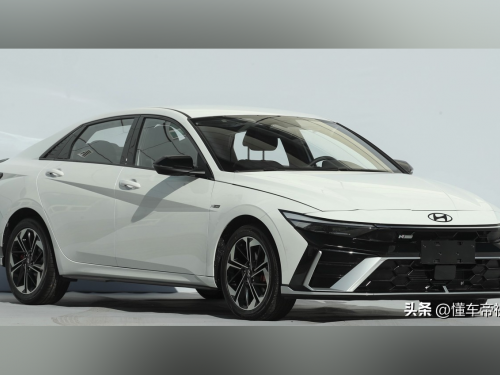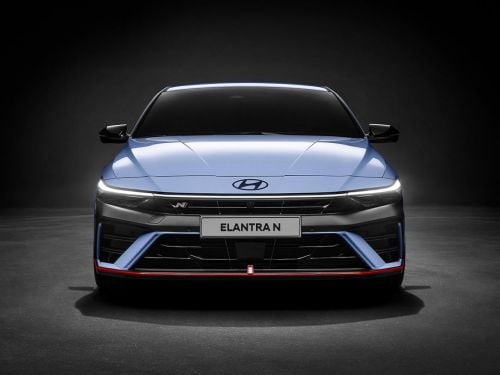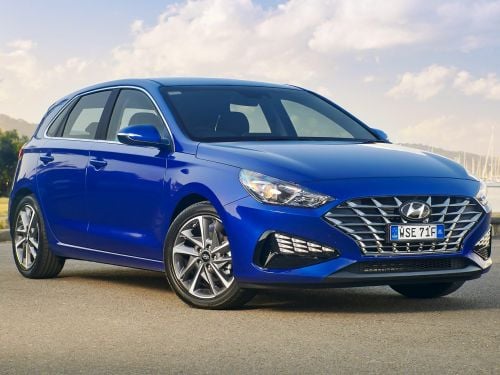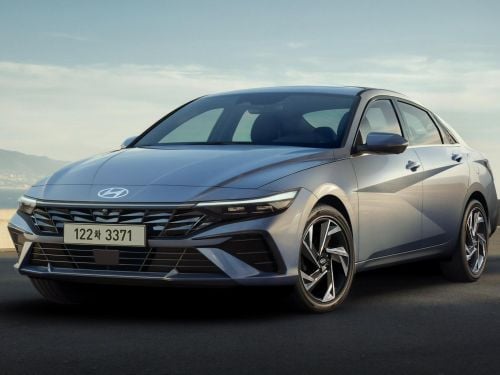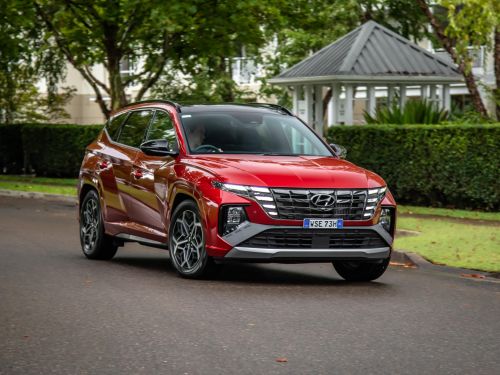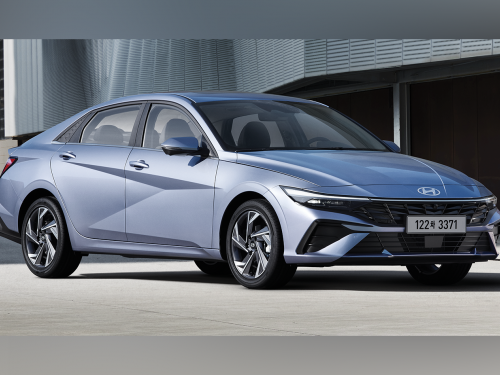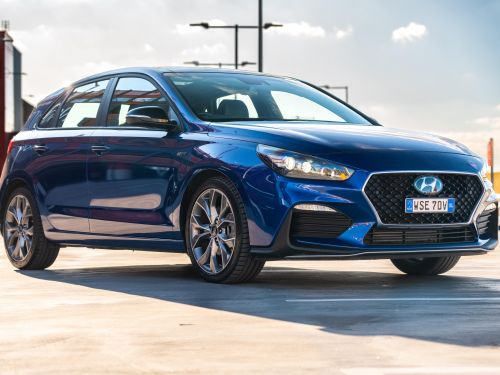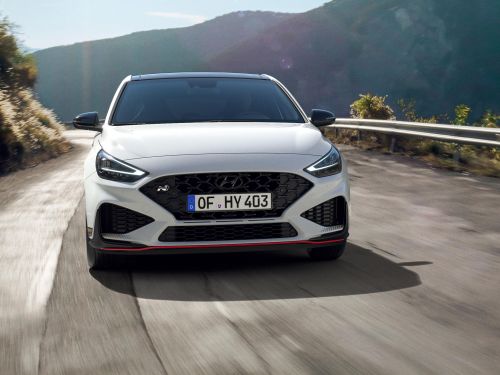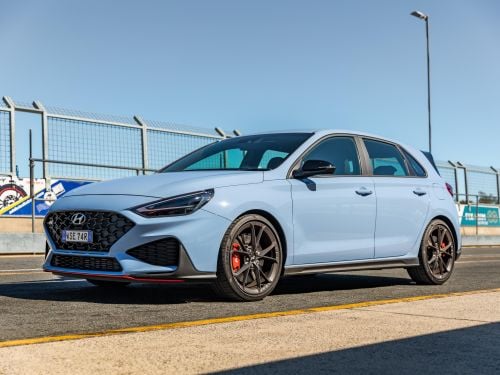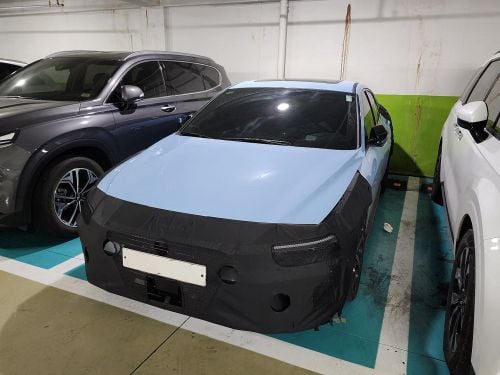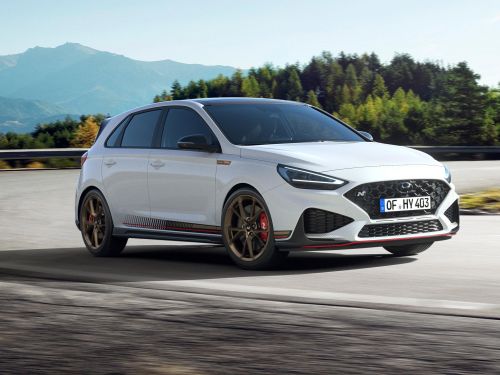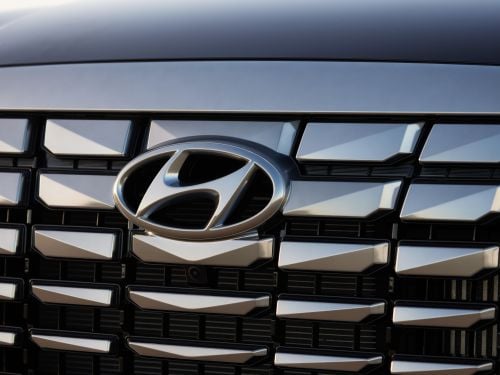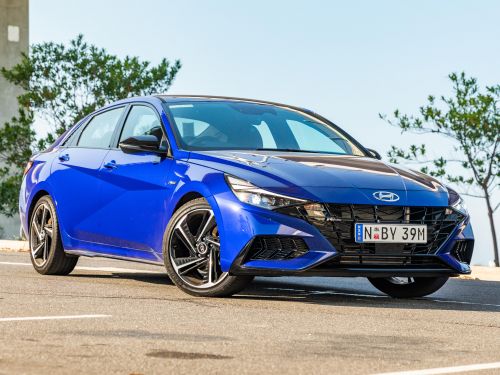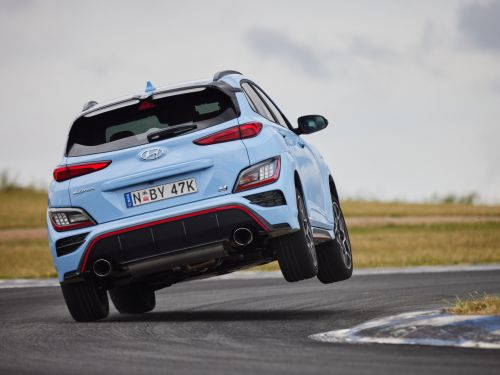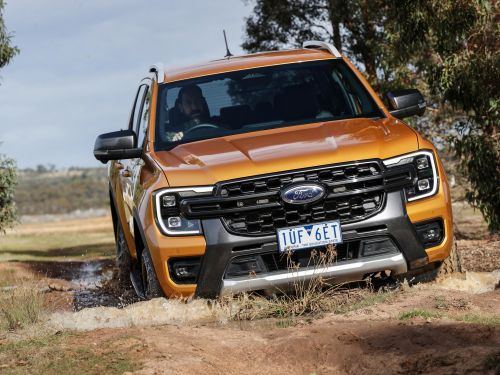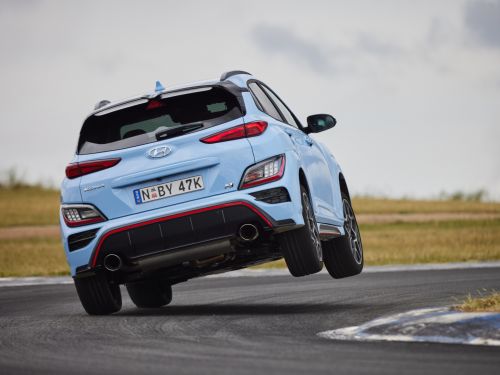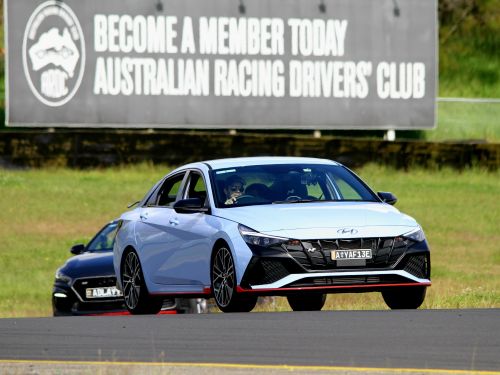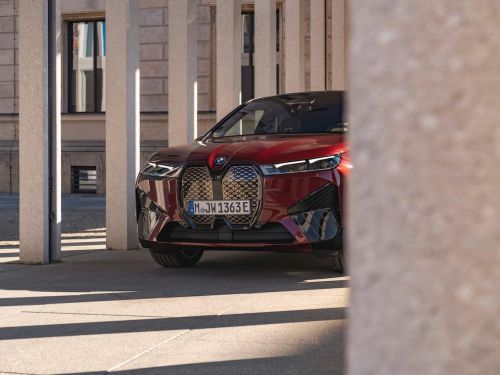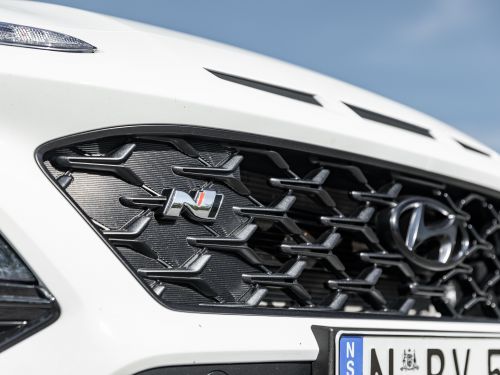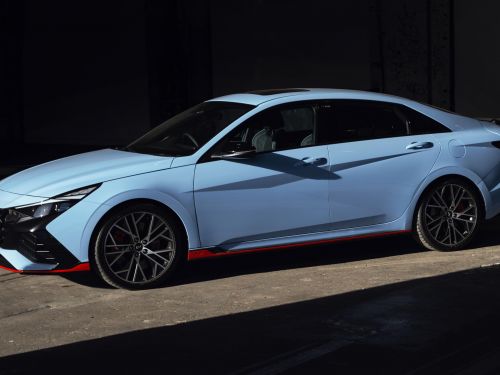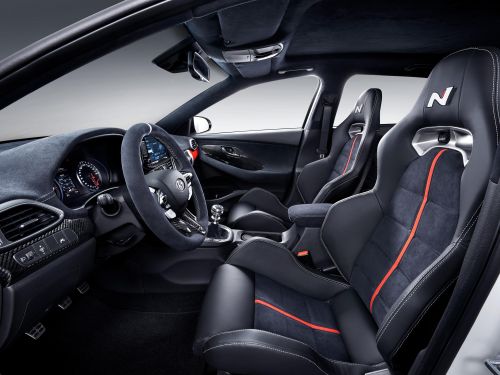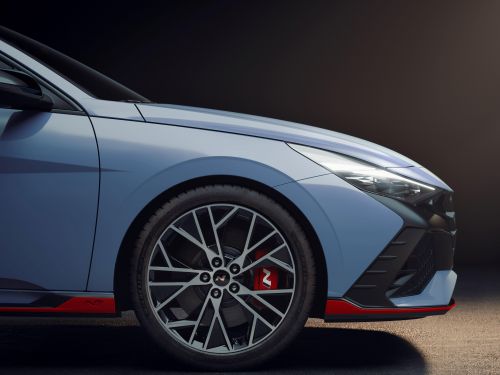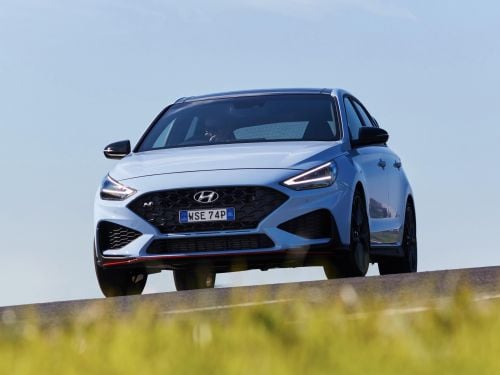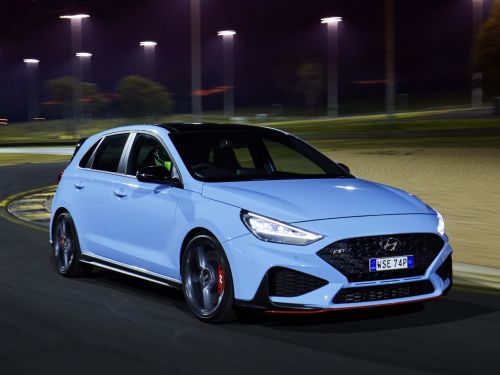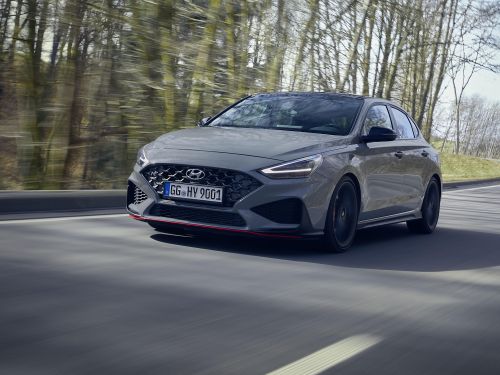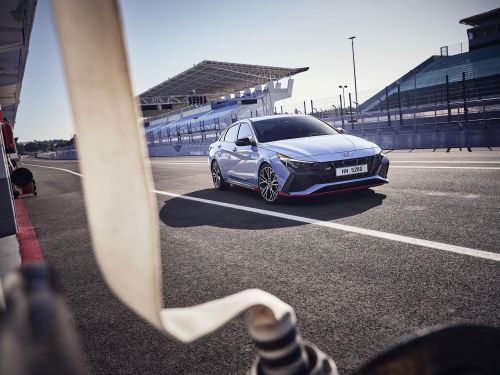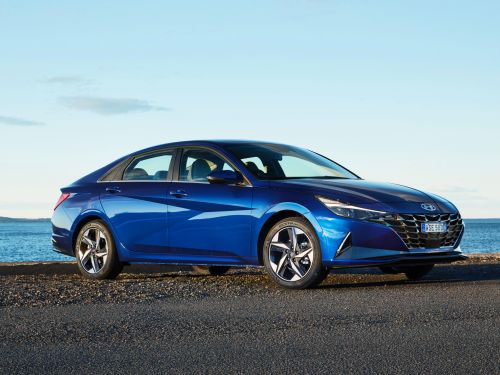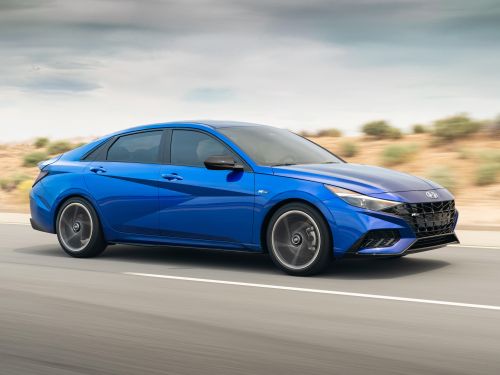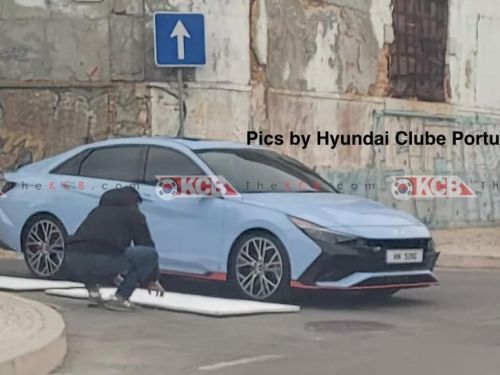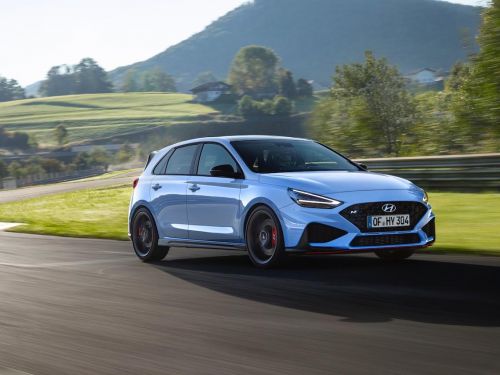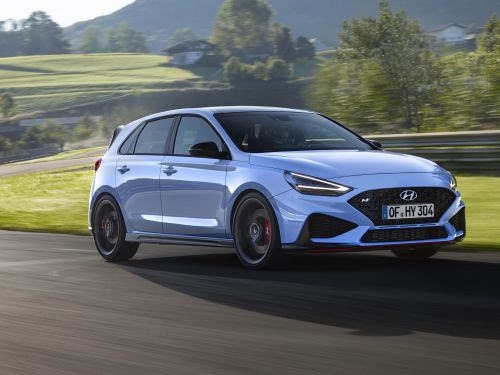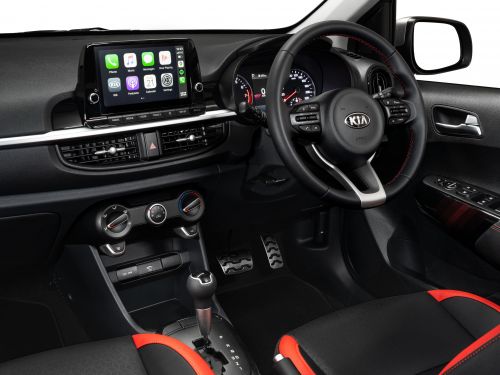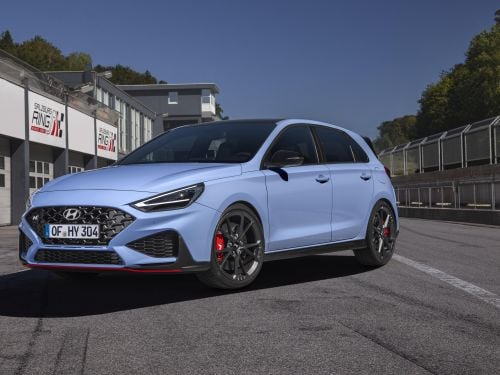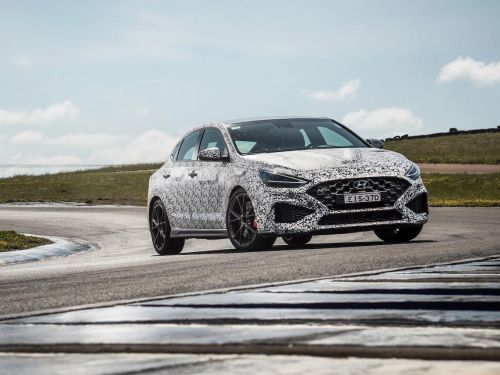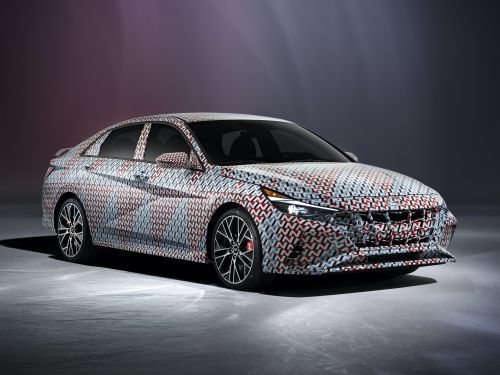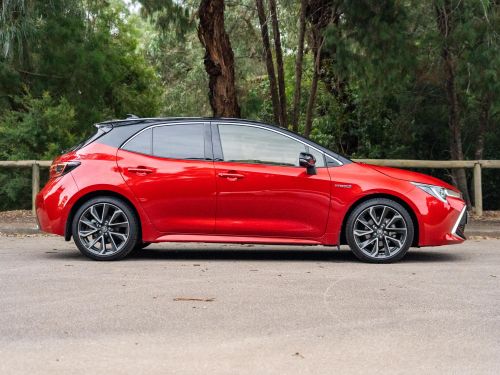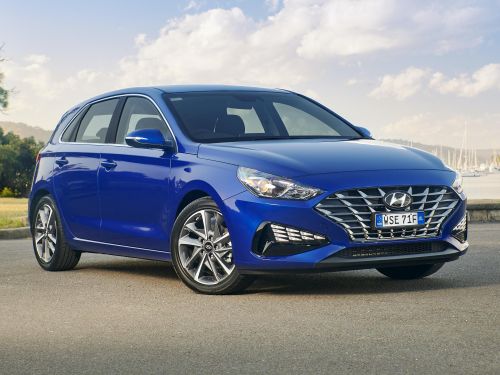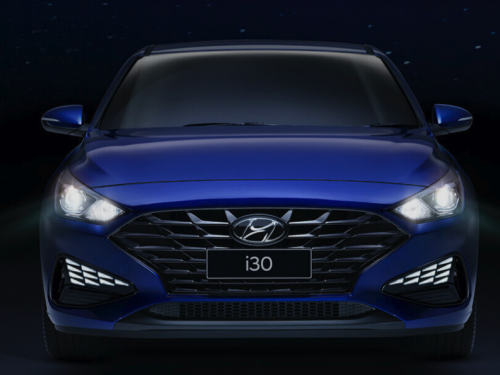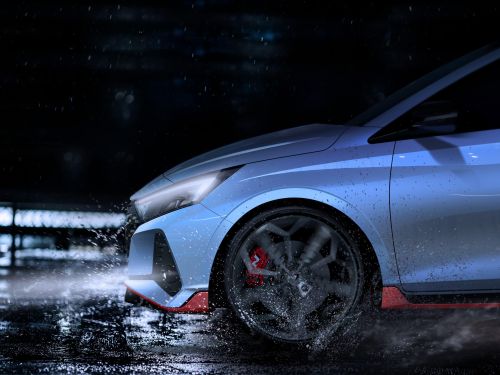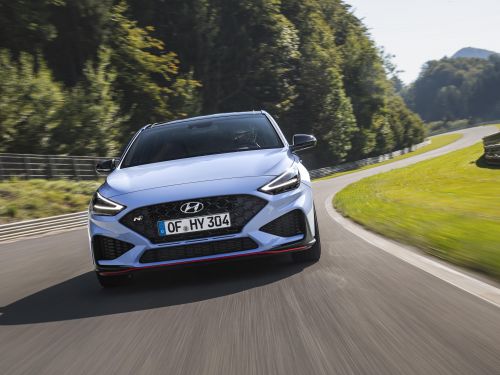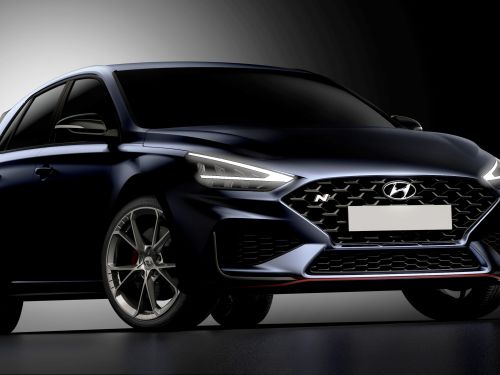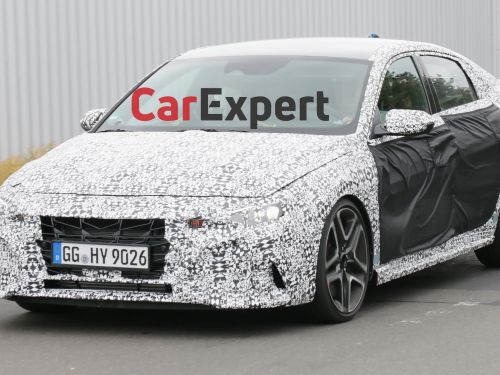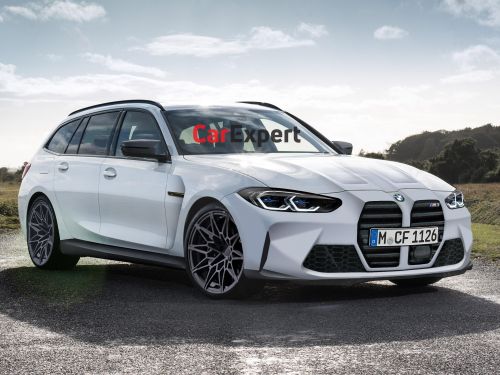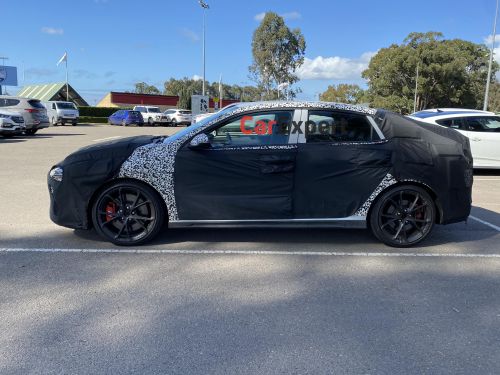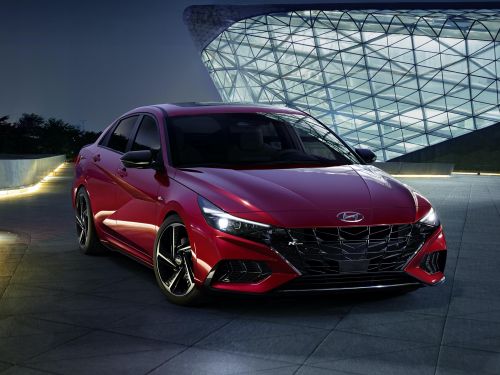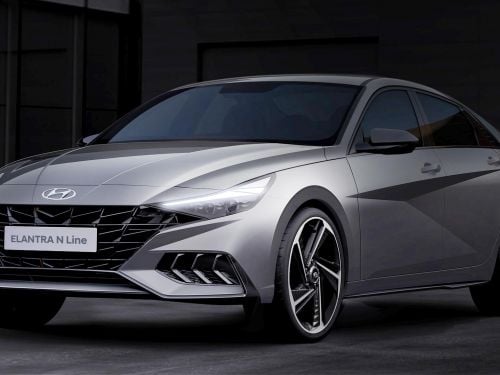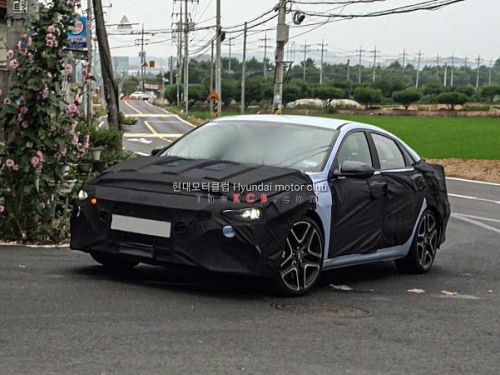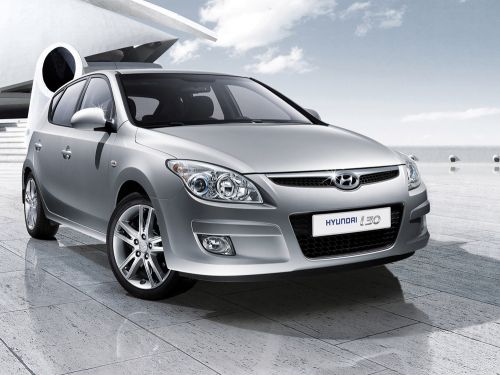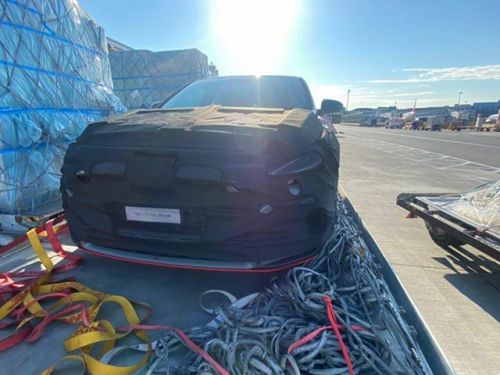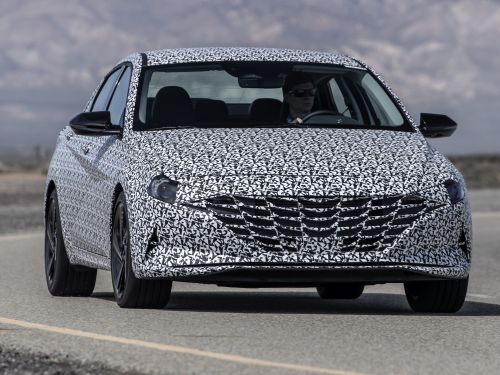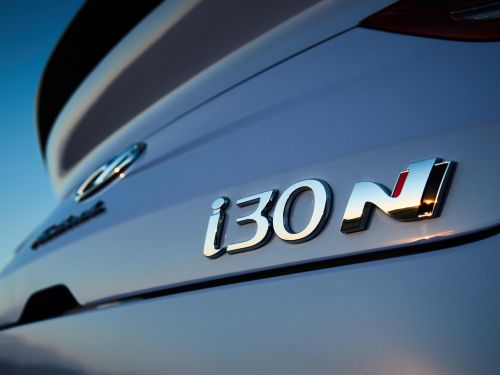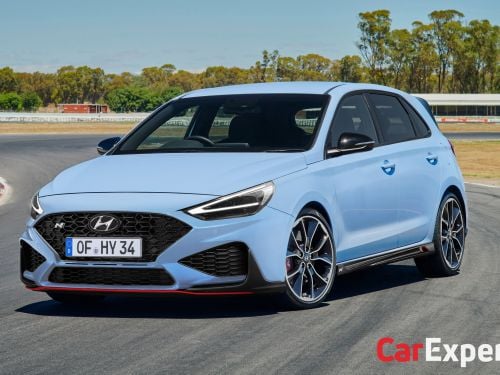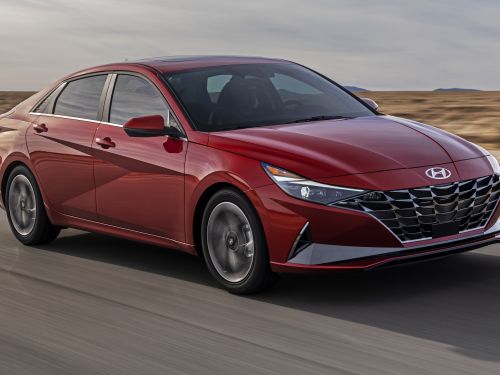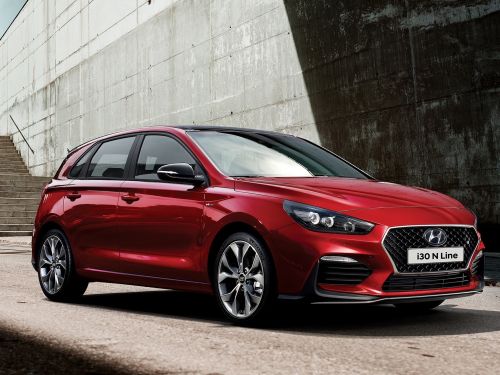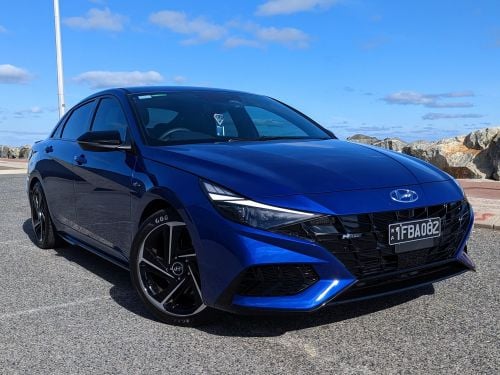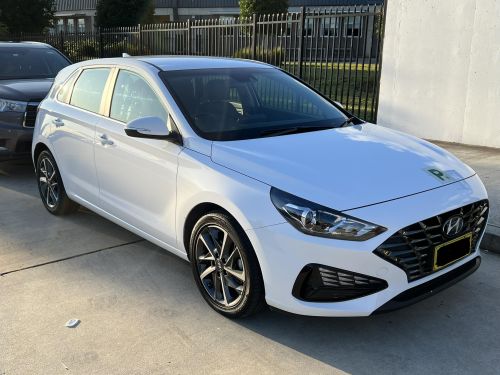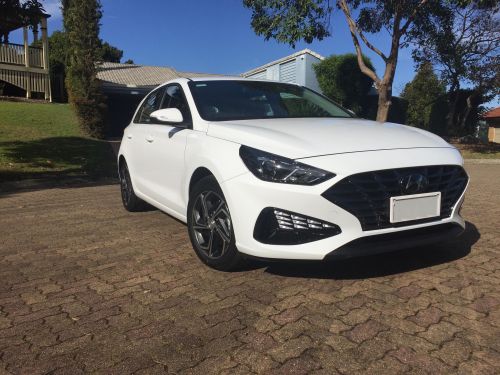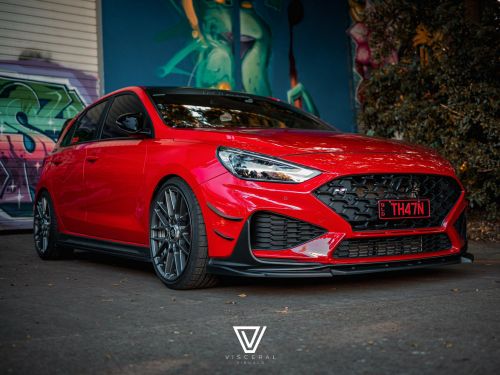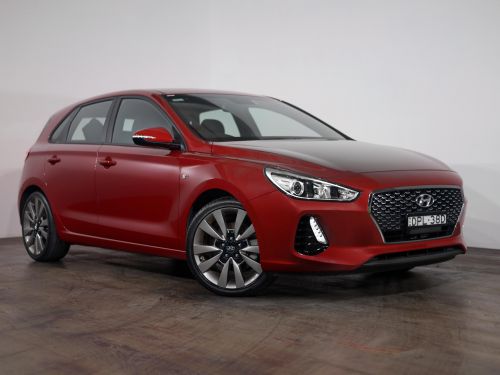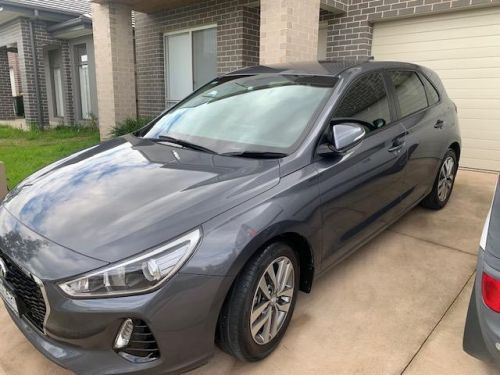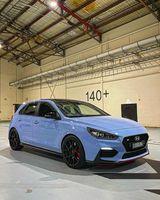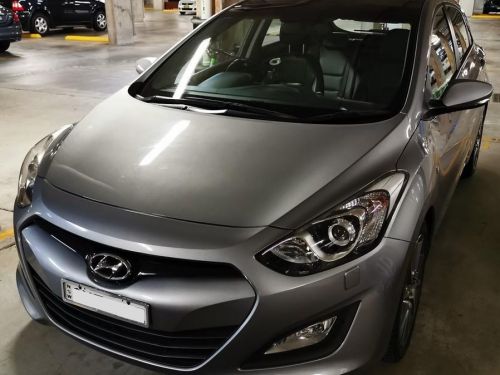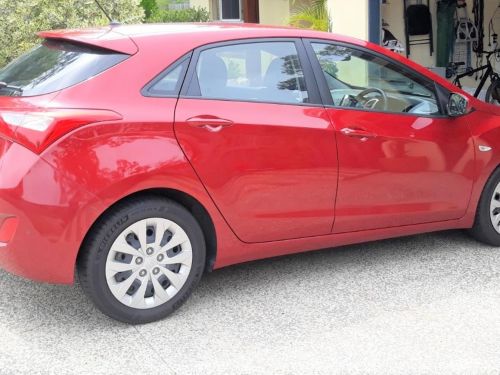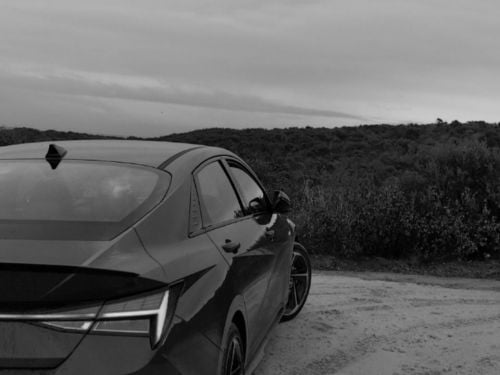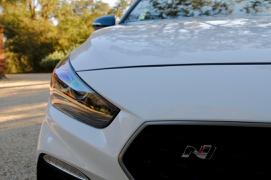2023 Hyundai i30

About the Hyundai i30
The Hyundai i30 small car range is one of Australia's top-selling vehicles. There are a myriad of variant and shape options, from hatchback to sedan, and base petrols through to the track-honed i30 N family.
There's something for everyone, even with no wagon available these days.
Summary
Myriad variants to choose from
Well-sorted ride and handling
N versions are proper dynamos
Too much tyre noise
1.6 turbo's shorter service intervals
N Line hatches lose some driver-assist features
Video Review
Skip to chapter
Hyundai i30 N DCT detailed review 2022
Does the 2022 Hyundai i30 N with DCT still sound as good as the manual? That's what I was keen to find out - the facelifted i30 N now has more power and more torque, along with bigger brakes and a fresh exterior.
Hyundai i30 Photo Gallery





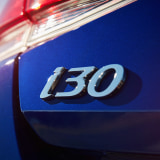














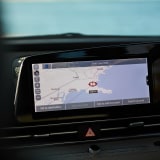







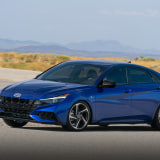







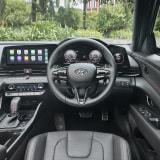






Hyundai i30 Price
- 2023 Hyundai i30 BASE MODEL (6 SP MANUAL): $24,000
- 2023 Hyundai i30 BASE MODEL (6 SP AUTOMATIC): $26,000
- 2023 Hyundai i30 ACTIVE (6 SP MANUAL): $26,000
- 2023 Hyundai i30 ACTIVE (6 SP AUTOMATIC): $27,500
- 2023 Hyundai i30 ACTIVE (6 SP AUTO SEQUENTIAL): $28,000
- 2023 Hyundai i30 N LINE: $30,500
- 2023 Hyundai i30 N LINE: $32,000
- 2023 Hyundai i30 N LINE: $32,500
- 2023 Hyundai i30 N LINE: $34,000
- 2023 Hyundai i30 ELITE (6 SP AUTOMATIC): $30,800
- 2023 Hyundai i30 ELITE (6 SP AUTO SEQUENTIAL): $32,000
- 2023 Hyundai i30 N LINE PREMIUM: $35,300
- 2023 Hyundai i30 N LINE PREMIUM: $37,300
- 2023 Hyundai i30 N LINE PREMIUM: $39,000
- 2023 Hyundai i30 N (6 SP MANUAL): $46,200
- 2023 Hyundai i30 N (8 SP AUTO DUAL CLUTCH): $49,200
- 2023 Hyundai i30 N PREMIUM: $49,200
- 2023 Hyundai i30 N PREMIUM: $50,200
- 2023 Hyundai i30 N PREMIUM: $50,200
- 2023 Hyundai i30 N PREMIUM WITH SUNROOF: $50,980
- 2023 Hyundai i30 N PREMIUM WITH SUNROOF: $52,510
- 2023 Hyundai i30 N PREMIUM WITH SUNROOF: $52,510
- 2023 Hyundai i30 N PREMIUM WITH SUNROOF: $53,980
- 2023 Hyundai i30 N DRIVE-N LIMITED EDITION (6 SP MANUAL): $53,480
- 2023 Hyundai i30 N DRIVE-N LIMITED EDITION (8 SP AUTO DUAL CLUTCH): $56,480
All prices are manufacturer's suggested retail price (MSRP) and before on-road costs which vary state by state.
Reviews
News
Hyundai i30 Range Guide
Base i30 (hatch only):


- 2.0-litre petrol
- 16-inch alloy wheels
- Full-sized alloy spare
- LED daytime running lights
- Dusk-sensing projector headlights
- Leather-wrapped wheel and shifter
- Cloth seats
- Reversing camera and sensors
- 8.0-inch touchscreen
- Apple CarPlay and Android Auto
- Six-speaker audio
- Manual A/C
- Active cruise control
- Rear vents
Active adds (hatch and sedan):


- Leather-appointed seats
- One touch auto up/down windows
- 17-inch wheels
Elite adds (hatch and sedan):


- Proximity key access
- Button start
- Rain-sensing wipers
- 10.25-inch touchscreen
- Digital radio
- Satellite-navigation
- Infinity-branded audio upgrade (hatch)
- Bose-branded audio upgrade (sedan)
- Wireless charging pad
- Dual-zone climate control
N Line main features (hatch and sedan):


- 1.6-turbo engine
- 18-inch alloy wheels
- Multi-link rear suspension
- Space-saver spare
- Dusk-sensing LED headlights
- Rain-sensing wipers
- Dual-zone climate control
- Michelin Pilot Sport tyres (hatch)
- Goodyear Eagle F1 tyres (sedan)
- Proximity key access
- Alloy pedal caps
- N Line sports gear knob, steering wheel and seats
- LED headlights and tail lights
- N Line body kit
- Paddle shifters for DCT auto
- Reversing camera and sensors
- 8.0-inch touchscreen
- Apple CarPlay and Android Auto
- Six-speaker audio
- Leather-appointed seats
N Line Premium add (hatch and sedan):
- 10.25-inch touchscreen
- Digital radio
- Satellite-navigation
- Infinity-branded audio upgrade (hatch)
- Bose-branded audio upgrade (sedan)
- Glass sunroof
- Powered driver's seat
- Heated and ventilated front seats
- Auto-dimming rear-view mirror
N hot models add (hatch):


- 2.0-litre turbo-petrol
- 19-inch alloy wheels
- Pirelli P-Zero tyres (hatch)
- Michelin Pilot Sport 4S tyres (sedan)
- e-LSD
- Active-valve exhaust
- Unique colours
- Uprated brakes
- Active dampers
- Unique body kit
- Stiffness bar
N Premium models add (hatch and sedan):
- Alcantara and leather-appointed seats (hatch)
- Leather-appointed seats (sedan)
- Auto-dimming mirror
- Heated seats and wheel
- Rain-sensing wipers
- Panoramic glass sunroof (option on manual hatch)
- Glass sunroof (standard on sedan)
Hyundai i30 Variants
Interior
There are actually some pretty big design differences between hatch and sedan, outside of course – but also inside. These two cars are sold under different nameplates (i30 and Elantra) in various markets, and it shows.
The sedan for example has a larger 10.25-inch digital instrument cluster on high-grade models, next to the hatchback's 7.0-inch display. It also has a more driver-oriented fascia, different door and dash shaping, and even a different grade-specific steering wheel. It's a much more cutting-edge design overall.


Both models offer a decent amount of storage and good build quality, although there's still evidence of cost-saving materials here and there. Both body types offer plenty of adjustability, although the sedan is a little tight on headroom – even though it lacks the hatchback's available panoramic roof.
The 8.0-inch infotainment screen is a decent size, boasts reversing camera footage of a decent resolution, and is flanked by physical shortcut buttons for various functions. There’s also a star button by the screen that you can program as a shortcut – I programmed it to take me to the home screen, as there’s unusually no physical home button.


In terms of storage, there’s a shelf at the base of the centre stack containing the wireless charging pad, while along the centre console there are two cupholders plus a fairly deep bin. The bottle holders in the doors fit 600ml bottles.
For someone 180cm tall, there’s ample legroom behind a front-seat occupant the same size. In fact, there’s a genuinely impressive amount of legroom back here, while the floor is mostly flat.
Rear-seat occupants get air vents, a fold-down centre armrest with cupholders, and bottle holders in the doors large enough for a 600ml bottle, but there are no USB outlets back here.
If you have small children, you can use one of the three top-tether anchor points for a child seat. There are also ISOFIX points for both outboard seats.















Exterior
Where the hatch looks like a pretty conventional five-door, albeit with a new-design grille and light combination, the sedan is all edges and angles and coupe-like profile. They're very, very different.























Hyundai i30 Colours
Regular i30s:
- Polar White
- Fluidic Metal ($595 extra)
- Amazon Grey ($595 extra)
- Phantom Black ($595 extra)
- Fiery Red ($595 extra)
- Intense Blue ($595 extra)






i30 N models:
- Polar White (both)
- Performance Blue (both)
- Shadow Grey (hatch)
- Engine Red (hatch)
- Phantom Black ($595 extra, both)
- Dark Knight ($595, hatch only)
- Intense Blue $595, sedan only)
- Fiery Red ($595, sedan only)
- Fluid Metal ($595, sedan only)
- Cyber Grey ($595, sedan only)






Cost of Ownership
Service costs vary depending on engine, with your best bet being to pre-pay for five years of servicing.
Base, Active and Elite hatchbacks and sedans with the base 2.0-litre engine have service intervals of 12 months or 15,000km, and come with a five-year service plan costing $1495.
N Line and N Line Premium hatchbacks and sedans with the turbocharged 1.6-litre engine and intervals of 12 months or 10,000km come with a five-year service plan costing $1495, but note the shorter distance intervals.
N and N Premium hatchbacks and sedans with the turbocharged 2.0-litre engine and intervals of 12 months or 10,000km come with a five-year service plan costing $1675.
How it Drives
Base models with the 120kW/203Nm (hatch) or 117kW/191Nm (sedan) 2.0-litre engine and six-speed transmissions are inoffensive motoring, with decent locally-sorted ride and handling balance – with one caveat being mediocre noise suppression.

The N-Line models have a multi-link rear suspension, 150kW and 265Nm turbo engines, and the option of a seven-speed dual-clutch auto with paddles, making them quite consummate warmed-up hatchbacks.
But the superstar models are the proper N cars, with their Nurburgring-honed tuning, adaptive dampers, multi-mode exhausts, massive brakes, LSDs, stiffening braces, variable steering and throttle modes, circuit maps, and track-ready driving modes that relax electronic driver aids.

These are the real-deal. And that's before mentioning the 206kW and 392Nm (more on over boost) turbo engine, and availability of either six-speed manual or new eight-speed DCT.
Hyundai i30 Safety Rating
When the Hyundai i30 hatchback was tested by ANCAP in 2017, it received a rating of five stars.
That rating was based on a frontal offset score of 14.01 out of 16 and a side impact score of 16 out of 16. Whiplash and pedestrian protection were rated Good and Acceptable, respectively.
The i30, Active and N Line grades have:
- Seven airbags
- Driver attention warning
- Camera, radar, car, pedestrian, cyclist AEB
- Active high beam
- Active lane-keeping aid
- Active cruise control (autos)
The Elite alone adds:
- Blind-spot monitor
- Safe Exit Warning
- Rear cross-traffic alert
The sedan hasn't been crashed tested by ANCAP, but features the following:
The Active grade has
- Six airbags
- Driver attention warning
- Camera, radar, car, pedestrian, cyclist, junction AEB
- Active lane-keeping aid
- Active cruise control (autos)
The Elite and N Lines add
- Active blind-spot assist (DCT)
- Blind-spot monitoring (manual)
- Active rear cross-traffic alert (DCT)
- Rear cross-traffic alert (manual)
- Safe Exit Warning
- Active high beam (N Lines only)
Hyundai i30 Lifecycle
The current generation Hyundai i30 was launched in April 2017 and is currently 49 percent through its lifecycle. The last update was a technology change that was launched in December 2022 with the next model expected in 2030.
Hyundai i30 Options
Metallic or Mica paint, and the sunroof on i30 N models.
Hyundai i30 Warranty
Hyundais come with a five-year, unlimited-kilometre warranty.
Hyundai i30 Stock Availability
By most accounts, supplies of the i30 are relatively good.
Hyundai i30 Boot Space
In terms of boot space, the hatch offers 395L versus 474L for the sedan, although the former has a more user-friendly aperture.


Hyundai i30 Fuel Economy
The 2.0-litre naturally aspirated hatch uses a claimed 7.3-7.4L/100km on the combined cycle, versus 7.1-7.5L/100km for the 1.6T N Lines – all are rated to use cheaper 91 RON unleaded.
The 2.0-litre naturally aspirated sedan uses a claimed 7.0L/100km on the combined cycle, versus 6.8-7.5L/100km for the N Lines.
The 2.0-litre turbo N hatch uses 8.5L/100km on 95 RON, versus 8.2L/100km for the sedan.
Depending on the variant, view the 2023 HYUNDAI I30 fuel usage below.
All Highway, City, and Combined figures below are litres per 100km
| Variant | Series | Style | Fuel Type | Highway | City | Combined | E10? |
|---|---|---|---|---|---|---|---|
| - | PD.V4 MY23 | 5D HATCHBACK | UNLEADED PETROL | - | - | 7.3 | Yes |
| - | PD.V4 MY23 | 5D HATCHBACK | UNLEADED PETROL | - | - | 7.4 | Yes |
| ACTIVE | CN7.V1 MY23 | 4D SEDAN | UNLEADED PETROL | - | - | 7.0 | Yes |
| ACTIVE | PD.V4 MY23 | 5D HATCHBACK | UNLEADED PETROL | - | - | 7.4 | Yes |
| ACTIVE | CN7.V1 MY23 | 4D SEDAN | UNLEADED PETROL | - | - | 7.0 | Yes |
| N LINE | PD.V4 MY23 | 5D HATCHBACK | UNLEADED PETROL | - | - | 7.5 | Yes |
| ELITE | PD.V4 MY23 | 5D HATCHBACK | UNLEADED PETROL | - | - | 7.4 | Yes |
| ELITE | CN7.V1 MY23 | 4D SEDAN | UNLEADED PETROL | - | - | 7.0 | Yes |
| N LINE | CN7.V1 MY23 | 4D SEDAN | UNLEADED PETROL | - | - | 7.5 | Yes |
| N LINE | PD.V4 MY23 | 5D HATCHBACK | UNLEADED PETROL | - | - | 7.1 | Yes |
| N LINE | CN7.V1 MY23 | 4D SEDAN | UNLEADED PETROL | - | - | 6.8 | Yes |
| N LINE PREMIUM | PD.V4 MY23 | 5D HATCHBACK | UNLEADED PETROL | - | - | 7.5 | Yes |
| N LINE PREMIUM | PD.V4 MY23 | 5D HATCHBACK | UNLEADED PETROL | - | - | 7.1 | Yes |
| N LINE PREMIUM | CN7.V1 MY23 | 4D SEDAN | UNLEADED PETROL | - | - | 6.8 | Yes |
| N | PDe.V5 MY23 | 5D HATCHBACK | PREMIUM UNLEADED PETROL | - | - | 8.5 | Yes |
| N | PDe.V5 MY23 | 5D HATCHBACK | PREMIUM UNLEADED PETROL | - | - | 8.5 | Yes |
| N PREMIUM | PDe.V5 MY23 | 5D HATCHBACK | PREMIUM UNLEADED PETROL | - | - | 8.5 | Yes |
| N PREMIUM | CN7.V1 MY23 | 4D SEDAN | PREMIUM UNLEADED PETROL | - | - | 8.2 | Yes |
| N PREMIUM | CN7.V1 MY23 | 4D SEDAN | PREMIUM UNLEADED PETROL | - | - | 8.2 | Yes |
| N PREMIUM WITH SUNROOF | PDe.V5 MY23 | 5D HATCHBACK | PREMIUM UNLEADED PETROL | - | - | 8.5 | Yes |
| N PREMIUM WITH SUNROOF | CN7.V1 MY23 | 4D SEDAN | PREMIUM UNLEADED PETROL | - | - | 8.2 | Yes |
| N PREMIUM WITH SUNROOF | CN7.V1 MY23 | 4D SEDAN | PREMIUM UNLEADED PETROL | - | - | 8.2 | Yes |
| N DRIVE-N LIMITED EDITION | PDE.V5 MY22 | 5D HATCHBACK | PREMIUM UNLEADED PETROL | - | - | 8.5 | Yes |
| N PREMIUM WITH SUNROOF | PDe.V5 MY23 | 5D HATCHBACK | PREMIUM UNLEADED PETROL | - | - | 8.5 | Yes |
| N DRIVE-N LIMITED EDITION | PDE.V5 MY22 | 5D HATCHBACK | PREMIUM UNLEADED PETROL | - | - | 8.5 | Yes |
Hyundai i30 Dimensions
The hatch measures 4340mm long, 1795mm wide and 1455mm tall, compared to 4650mm/1825mm/1430mm for the sedan. The sedan also has a 70mm longer wheelbase.
Depending on the variant, the 2023 HYUNDAI I30 measures as below.
| Variant | Series | Style | Length (mm) | Width (mm) | Height (mm) | Wheelbase (mm) |
|---|---|---|---|---|---|---|
| PD.V4 MY23 | 5D HATCHBACK | 4340 | 1795 | 1455 | 2650 | |
| PD.V4 MY23 | 5D HATCHBACK | 4340 | 1795 | 1455 | 2650 | |
| ACTIVE | CN7.V1 MY23 | 4D SEDAN | 4650 | 1825 | 1430 | 2720 |
| ACTIVE | PD.V4 MY23 | 5D HATCHBACK | 4340 | 1795 | 1455 | 2650 |
| ACTIVE | CN7.V1 MY23 | 4D SEDAN | 4650 | 1825 | 1430 | 2720 |
| N LINE | PD.V4 MY23 | 5D HATCHBACK | 4345 | 1795 | 1453 | 2650 |
| ELITE | PD.V4 MY23 | 5D HATCHBACK | 4340 | 1795 | 1455 | 2650 |
| ELITE | CN7.V1 MY23 | 4D SEDAN | 4650 | 1825 | 1430 | 2720 |
| N LINE | CN7.V1 MY23 | 4D SEDAN | 4675 | 1825 | 1430 | 2720 |
| N LINE | PD.V4 MY23 | 5D HATCHBACK | 4345 | 1795 | 1453 | 2650 |
| N LINE | CN7.V1 MY23 | 4D SEDAN | 4675 | 1825 | 1430 | 2720 |
| N LINE PREMIUM | PD.V4 MY23 | 5D HATCHBACK | 4345 | 1795 | 1453 | 2650 |
| N LINE PREMIUM | PD.V4 MY23 | 5D HATCHBACK | 4345 | 1795 | 1453 | 2650 |
| N LINE PREMIUM | CN7.V1 MY23 | 4D SEDAN | 4675 | 1825 | 1430 | 2720 |
| N | PDe.V5 MY23 | 5D HATCHBACK | 4340 | 1795 | 1445 | 2650 |
| N | PDe.V5 MY23 | 5D HATCHBACK | 4340 | 1795 | 1445 | 2650 |
| N PREMIUM | PDe.V5 MY23 | 5D HATCHBACK | 4340 | 1795 | 1445 | 2650 |
| N PREMIUM | CN7.V1 MY23 | 4D SEDAN | 4675 | 1825 | 1415 | 2720 |
| N PREMIUM | CN7.V1 MY23 | 4D SEDAN | 4675 | 1825 | 1415 | 2720 |
| N PREMIUM WITH SUNROOF | PDe.V5 MY23 | 5D HATCHBACK | 4340 | 1795 | 1445 | 2650 |
| N PREMIUM WITH SUNROOF | CN7.V1 MY23 | 4D SEDAN | 4675 | 1825 | 1415 | 2720 |
| N PREMIUM WITH SUNROOF | CN7.V1 MY23 | 4D SEDAN | 4675 | 1825 | 1415 | 2720 |
| N DRIVE-N LIMITED EDITION | PDE.V5 MY22 | 5D HATCHBACK | 4340 | 1795 | 1445 | 2650 |
| N PREMIUM WITH SUNROOF | PDe.V5 MY23 | 5D HATCHBACK | 4340 | 1795 | 1445 | 2650 |
| N DRIVE-N LIMITED EDITION | PDE.V5 MY22 | 5D HATCHBACK | 4340 | 1795 | 1445 | 2650 |
The 2023 HYUNDAI I30 has a braked towing capacity from 1100kg to 1600kg depending on the variant and an unbraked towing capacity from 600kg to 700kg depending on the variant.
Hyundai i30 Market Fit
Both body styles are classified as Small Cars under $40,000, even though the N models exceed this.
Hyundai i30 Sales Data
The i30 was number-two in class in 2021, recording 25,575 sales – behind the Toyota Corolla, ahead of the Kia Cerato and Mazda 3. The i30 N is more a Volkswagen Golf GTI/R rival.
Owner Reviews
Should you buy the Hyundai i30
From a cheap rental base to a track-honed dynamo, the range has you pretty covered. The only real missing areas are the lack of a hybrid to match the Corolla, and lack of a wagon.
Competitor Analysis
The i30's strength lies in its diversity: there's almost something for everyone, save the lack of a wagon.
It's more spacious than a Toyota Corolla, and offers more performance from the option of 1.6 and 2.0-litre turbo engines. The Corolla counters by packing a frugal hybrid option, however.
Hyundai i30 Interesting Facts
Ex BMW M chief Albert Biermann led development of the i30 Ns at Germany's Nurburgring.


